Circa 2019 o.o!!!!
A light-based machine could hold the answers.

The drought affecting the Mississippi River has revealed a watery secret – a shipwreck that’s over a hundred years old. The skeleton of the craft emerged in Baton Rouge this summer, thanks to low water levels. Dr. Chip McGimsey, archaeologist for the State of Louisiana, believes the ruins belong to the Brookhill Ferry, which sank in 1915. He says the wreck provides a unique way to explore the past, noting, “It makes history alive in a way that you don’t get any other way.”

It can download 230 million photographs in one second.
We all want more internet power and now we may just get it. A single computer chip has transmitted a record 1.84 petabits of data per second via a fiber-optic cable.
230 million photographs downloaded in one second
That amount exhibited enough bandwidth to download 230 million photographs in that time. The initiative was led by Asbjørn Arvad Jørgensen at the Technical University of Denmark in Copenhagen.
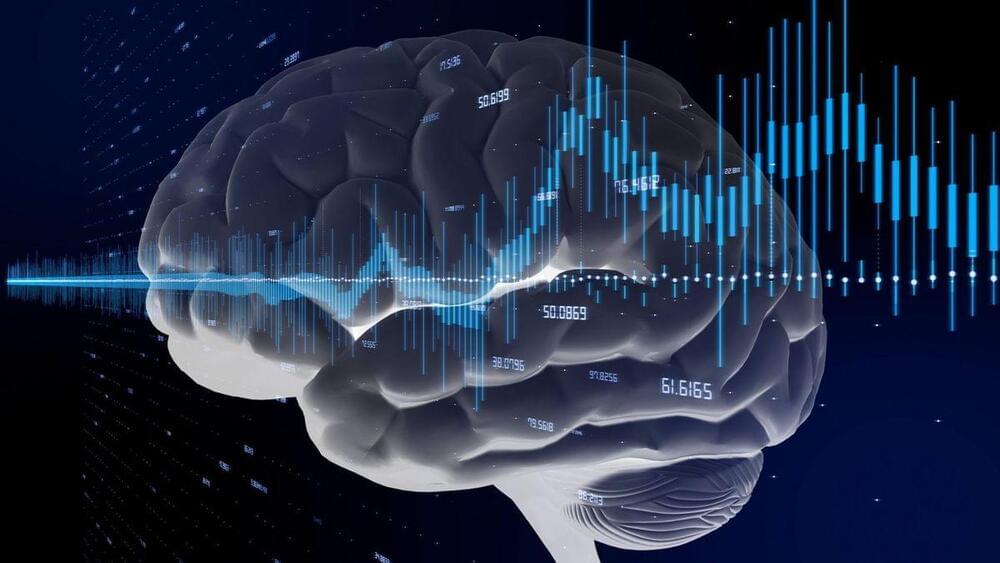
It enables us to make extraordinary leaps of imagination.
We all have to make hard decisions from time to time. The hardest of my life was whether or not to change research fields after my Ph.D., from fundamental physics to climate physics. I had job offers that could have taken me in either direction — one to join Stephen Hawking’s Relativity and Gravitation Group at Cambridge University, another to join the Met Office as a scientific civil servant.
I wrote down the pros and cons of both options as one is supposed to do, but then couldn’t make up my mind at all. Like Buridan’s donkey, I was unable to move to either the bale of hay or the pail of water.
Metamorworks/iStock.
Since it was doing my head in, I decided to try to forget about the problem for a couple of weeks and get on with my life. In that intervening time, my unconscious brain decided for me. I simply walked into my office one day and the answer had somehow become obvious: I would make the change to studying the weather and climate.
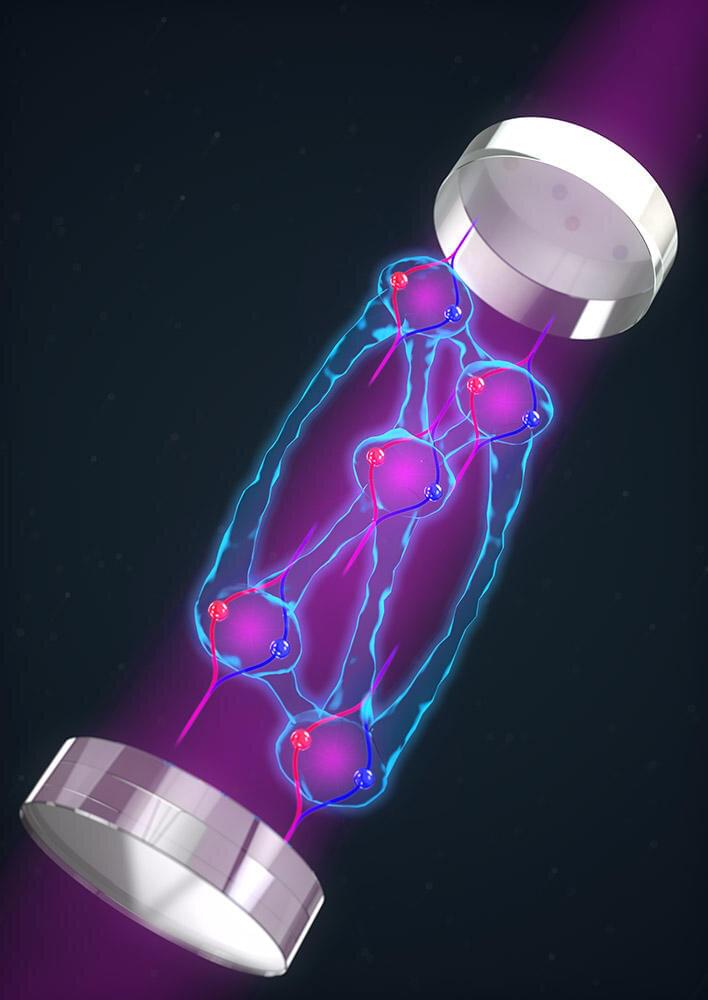
JILA and NIST Fellow James K. Thompson’s team of researchers have for the first time successfully combined two of the “spookiest” features of quantum mechanics to make a better quantum sensor: entanglement between atoms and delocalization of atoms.
Einstein originally referred to entanglement as creating spooky action at a distance—the strange effect of quantum mechanics in which what happens to one atom somehow influences another atom somewhere else. Entanglement is at the heart of hoped-for quantum computers, quantum simulators and quantum sensors.
A second rather spooky aspect of quantum mechanics is delocalization, the fact that a single atom can be in more than one place at the same time. As described in their paper recently published in Nature, the Thompson group has combined the spookiness of both entanglement and delocalization to realize a matter-wave interferometer that can sense accelerations with a precision that surpasses the standard quantum limit (a limit on the accuracy of an experimental measurement at a quantum level) for the first time.

Gates will provide grants to prepare teachers better for teaching math and to curriculum companies and nonprofits to develop higher-quality teaching materials. The foundation will also support research into math education and make grants to help high-school math courses prepare students for college and the workplace.
A big problem with math as it is taught today is that students learn in isolation and can feel crushed when they get the wrong answer to a problem, says Shalinee Sharma, co-founder of Zearn, an educational nonprofit and Gates grantee who, with Hughes, spoke with reporters this week. Zearn uses computer-based lessons that incorporate a lot of visuals to keep students interested and provides feedback on progress to help teachers tailor lessons for individual students. A new approach in which students work in teams to solve problems, she said, can turn all students into “math kids.”
“When all kids are ‘math kids,’ making mistakes will be OK,” she said. “It won’t be embarrassing. In fact, making mistakes will be considered normal and an essential part of math learning.”
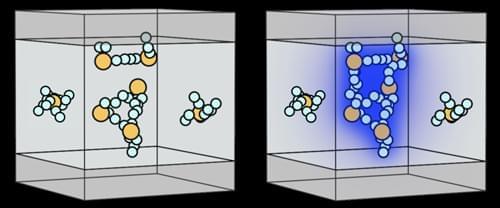
Resistive switching random-access memories (RRAMs) integrate information storage and processing into the same device, enabling faster and more energy-efficient computing. However, RRAMs are challenging to fabricate and suffer from inconsistent on-off switching. Now Zheng Jie Tan, Vrindaa Somjit, and collaborators at the Massachusetts Institute of Technology have discovered that adding dopants to the RRAMs dramatically improves their performance and the yield of their fabrication [1]. The researchers say their results provide an additional “knob” to optimize RRAMs, helping position them as one of the leading technologies for so-called in-memory computation.
An RRAM comprises an insulating material sandwiched between two metallic layers. The bits are defined by the amount of current that passes through the device via conduction paths in the insulator under a voltage. If the voltage is strong enough, it can induce the formation or destruction of conduction paths, thus controlling information processing.
While fabricating their device, the researchers added electronegative dopants, such as gold atoms, to the insulating material. The electron redistribution induced by the dopants facilitated the formation of conduction paths, which became more stable and showed increased on-off switching consistency compared with their undoped counterparts. Moreover, doped RRAMs were consistently fabricated with conducting paths already established before the device was used. Undoped RRAMs are often fabricated without such paths, and the postfabrication process required to create them—“electroforming,” involving the application of a very strong voltage—can result in irreparable device damage.

A single computer chip has transmitted a record 1.84 petabits of data per second via a fibre-optic cable – enough bandwidth to download 230 million photographs in that time, and more traffic than travels through the entire internet’s backbone network per second.
Asbjørn Arvad Jørgensen at the Technical University of Denmark in Copenhagen and his colleagues have used a photonic chip – a technology that allows optical components to be built onto computer chips – to divide a stream of data into thousands of separate channels and transmit them all at once over 7.9 kilometres.
First, the team split the data stream into 37 sections, each of which was sent down a separate core of the fibre-optic cable. Next, each of these channels was split into 223 data chunks that existed in individual slices of the electromagnetic spectrum. This “frequency comb” of equidistant spikes of light across the spectrum allowed data to be transmitted in different colours at the same time without interfering with each other, massively increasing the capacity of each core.
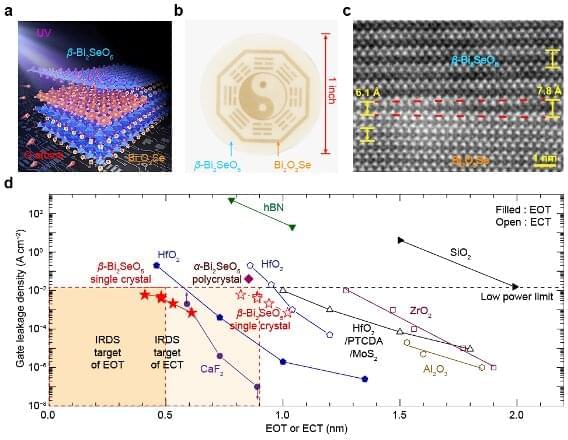
Field-effect transistors (FETs) are transistors in which the resistance of most of the electrical current can be controlled by a transverse electric field. Over the past decade or so, these devices have proved to be very valuable solutions for controlling the flow of current in semiconductors.
To further develop FETs, electronics engineers worldwide have recently been trying to reduce their size. While these down-scaling efforts have been found to increase the device’s speed and lower the power consumption, they are also associated with short-channel effects (i.e., unfavorable effects that occur when an FET’s channel length is approximately equal to the space charge regions of source and drain junctions within its substrate).
These undesirable effects, which include barrier lowering and velocity saturation, could be suppressed by using 2D semiconductor channels with high carrier mobilities and ultrathin high–k dielectrics (i.e., materials with high dielectric constants). Integrating 2D semiconductors with dielectrics with similar oxide thicknesses has been found to be highly challenging.
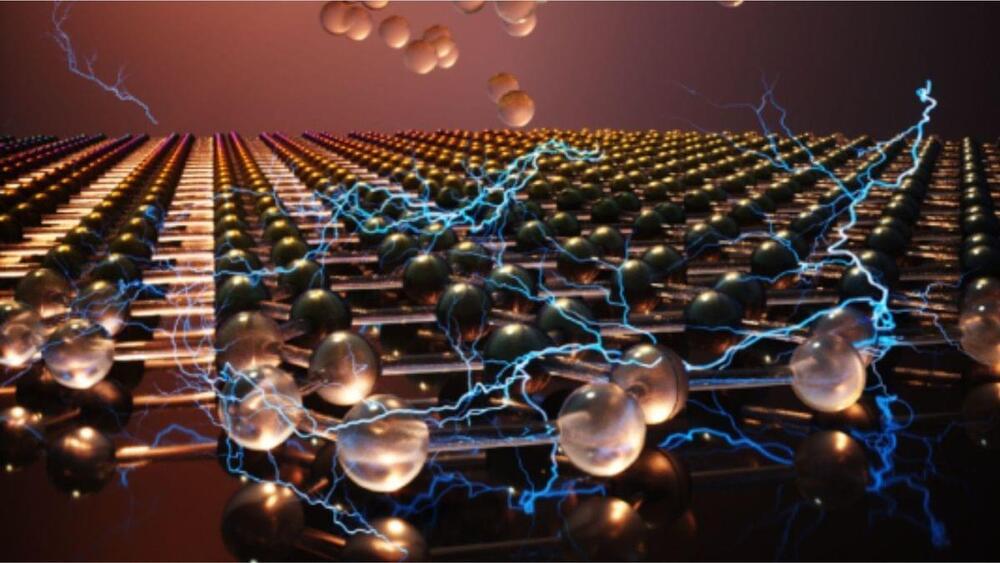
“Approximately 200,000 times thinner than human hair.”
New energy-efficient devices are made possible by the thinnest ferroelectric material ever created, thanks to the University of California Berkeley and Argonne National Laboratory.
As a result of this development, intriguing material behavior at small scales could reduce energy demands for computing, revealed ANL.